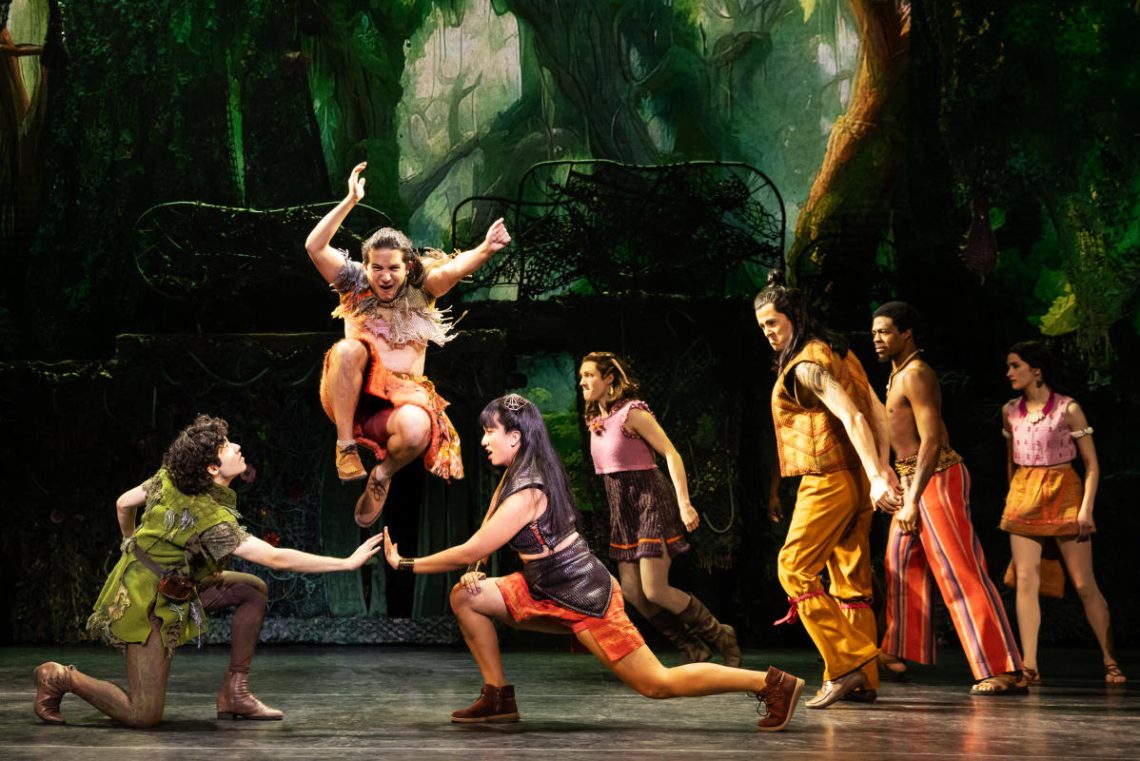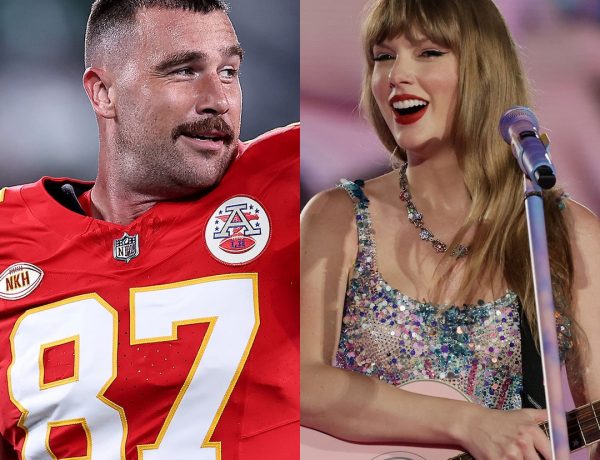While Peter Pan has served as a high-flying staple of Broadway revivals and tours since it debuted in 1954, the musical about the boy who could fly has also seen its fair share of criticism — especially for its racist depiction of Native Americans as caricatures and stereotypes.
After all, the musical — adapted from the play by J.M. Barrie — features a tribe that speaks broken English as well as a hypersexualized Tiger Lily who has been described as an “exotic damsel in distress.”
So when Larissa FastHorse (Sicangu Lakota Nation), the first Native American female playwright to be produced on Broadway, was approached to rewrite the book of a new touring production of Peter Pan, her first reaction was to say no.
“As a Native woman,” she told Yahoo Entertainment, “all I knew was that it had caused harm to people.”
When pressed by her agent to give the script a read and take the weekend to think about it, FastHorse relented. After all, she could always say no on Monday.
Once she read through the script though, she had a change of heart.
“It’s really good,” the 2020 MacArthur Fellow said about the story itself. “Magical, beautiful. I felt it was fixable and worth fixing.”
“When you read the original material, it’s very hurtful, it’s blatantly hurtful. It says really — in character descriptions and things — really negative things toward the Native people,” FastHorse explained. “One of the base assumptions was just that, if Indians are there, we’re fighting them.”
After speaking to several Native tribal elders and advisers, who encouraged her to indeed fix it, FastHorse said yes.
The new touring production of Peter Pan, directed by Lonny Price and produced by NETworks Presentations, opens Feb. 20 in Baltimore and will continue on a national tour through April 2025. With FastHorse’s input, the show will have a stronger representation of Indigenous characters, feature Indigenous actors in Indigenous roles and empower other characters along the way.
‘A powerful voice’
The playwright referred to the Native perspective of looking ahead seven generations before making crucial decisions when she approached the changes for Peter Pan.
“What script am I leaving behind?” she asked. “I’m making choices, not just based on one production on this tour, or the national tour, but I’m making choices based on the future, and making sure that things can be done for a long time by a lot of different folks.”
In addition to rewriting the book, FastHorse also insisted on casting Indigenous actors in the show to extend more theater jobs to Native people. She said she also cast Indigenous actors “so that no one has to play redface.”
Tiger Lily has not only been rewritten, she’ll also be played by Indigenous singer-songwriter Raye Zaragoza (Akimel O’otham). Native actors Kenny Ramos (Barona Band of Mission Indians/Kumeyaay Nation), Cheyenne Omani (Chickasaw) and Bailey Frankenberg (Cherokee/Choctaw) also portray Indigenous peoples in the production.
FastHorse has reworked the characters of Tiger Lily and her tribe to be the last of extinct cultures from around the globe who reside in Neverland.
“There were Indigenous people indigenous to everywhere on the planet, so each of them is the last of their culture, and they come to Neverland to preserve their culture until they can find a way back to this world because the Neverland is a place where you don’t grow old. So they can live forever and keep their culture alive,” she said.
Tiger Lily is from a North American Indigenous tribe, but she’s also in Neverland with other representatives from extinct European, African and Asian cultures.
FastHorse intentionally rewrote the Native characters to be from extinct tribes rather than current living tribes in order to avoid them being seen as “magical” creatures in Neverland instead of real people.
“The magic of Neverland, a place where you never grow old, is a safe place where if I’m the last of my people, I can go there and save my culture and keep it alive,” FastHorse said. “That’s a beautiful use of the magic of Neverland, as opposed to taking real people and turning them into magical beings when we’re actually people that are right here.”
FastHorse, who wrote the 2023 Broadway production of The Thanksgiving Play, about a group of white people who want to stage a school play about the first Thanksgiving but fail to include any Native Americans, knows that her role in this reworking of Peter Pan is different from the versions that came before her. She isn’t the first Native person to address the problematic parts.
In 2015, for NBC’s live broadcast, producers hired Jerod Impichchaachaaha’ Tate (Chickasaw) as a consultant to rewrite lyrics to the “gibberish-laden” song “Ugg-a-Wugg,” something that will not be included at all in this version.
“In the past, this has been rewritten at times and redone,” FastHorse said, “and they’ve always hired Native consultants, who, let’s be honest, don’t have any power in the room, and as the book writer, they very much have given me more power than the average book writer.”
Not only does that power come from the ability to rewrite the book, it also comes in the form of compensation. Instead of getting a flat rate for her work, FastHorse will be receiving royalties on the production and its merchandise.
“[The producers have] been very generous and understanding that they had to give me not just an authentic voice, but a powerful voice,” she said.
FastHorse is also training her eyes on the next generations of Native playwrights. While she has opened the figurative door to Broadway, she says her job is to hold that door open for other Indigenous talent.
“Then they get to just sleep at night and only worry about their creative process,” she said about her hopes for future Native playwrights on Broadway, “and not worry about the doors and not worry about opening it and not worry about other generations because it’s just assumed that they’re there and that there’s more people coming.”





